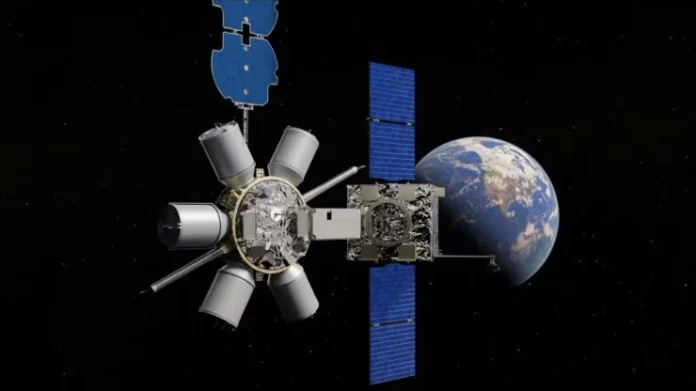Orlando (Florida): A top National Space Council official urged US agencies to start budgeting for on-orbit satellite refuelling and servicing capabilities as a signal to industry that they’re serious about pursuing new ways of operating in space.
Diane Howard, the council’s head of commercial space policy, said agencies including the Space Force have done a good job in recent years of articulating their interest in these types of capabilities, but now they need to act.
“We need a clear demand signal from government users. We need to identify and prioritize resources, funding and personnel,” Howard said during a January 30 speech at the Space Mobility Conference in Orlando, Florida. “Clear strategy, clear policy, clear requirements and real funding will send a consistent and reliable message to investors, to the private sector and to our international allies and partners.”
The ability to refuel or repair a satellite in space could have significant implications for how the military operates in the domain. The service wants to demonstrate an on-orbit refuelling capability by 2026. Last year, it created a servicing, mobility and logistics directorate to oversee these efforts and craft a roadmap for adopting these capabilities. In September, the Space Force agreed to co-fund a refuelling vehicle prototype with space mobility company Astroscale US.
The National Space Council, chaired by Vice President Kamala Harris, has been taking steps to support companies as they develop “novel space activities” like refuelling and repair systems, releasing a regulatory framework in late December.
Howard and others at the Space Mobility Conference here said these steps need to be backed by a tangible commitment to pursuing these capabilities.
Clare Martin, executive vice president of Astroscale US, said industry and the private investor community want to see the government put funding toward satellite servicing capabilities. “A demand signal is not a statement at a conference like this,” she said during a January 30 panel. “A demand signal is something planned for in the budget that gives an indication of some sustained, long-term funding.”
Martin is “optimistic” that the recent steps the Space Force has taken, particularly its decision to create a dedicated acquisition office, are bringing the service closer to requesting funding for a longer-term program.
Robert Hauge, president of Northrop Grumman-owned Space Logistics, said that signal not only spurs investment from companies developing the servicing capabilities, but it shows commercial operators that the government sees potential in the market.
“When the government procures that capability, that sends a demand signal not just to the industry building it, but it sends a message to the satellite operations industry as well that this market is real,” he said during the same panel.













